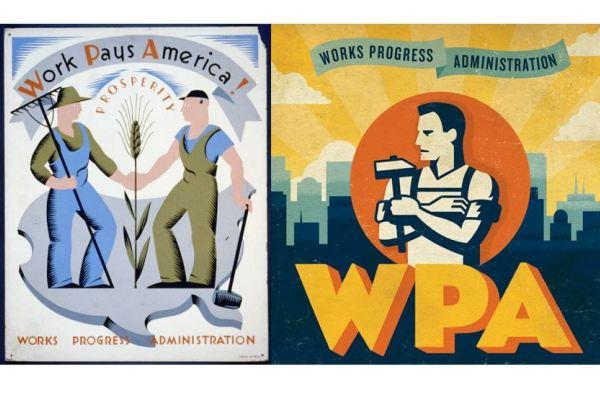Jobs for All Americans: Will the Business Community Allow It?
Published: Apr 25, 2018

According to the Washington Post, Vermont Senator Bernie Sanders is set to propose a plan to guarantee a job to "every American worker 'who wants or needs one.'"
The plan has already been met with the expected responses from across the political spectrum. Among the objections: the fact that the plan is currently un-costed, and no mechanism for paying it has yet been suggested (although it's all but certain that it would entail some combination of: taxes; projected reductions in spending on programs such as TANF and SNAP, which would no longer be needed by many current recipients; and good old-fashioned deficit spending).
On its face, it’s a compelling idea: the technological revolution we're living through is steadily erasing human jobs—especially in low-skill occupations—and inequality is at levels that haven't been seen since the 1920s. With millions of American citizens being left behind—or at risk of it—because of this disruption, a plan that guarantees a government job for anyone who wants it has a lot of appeal.
However, it also has a lot of problems, not least in terms of logistics. Over at New York, Jonathan Chait outlines one significant issue—skills—as follows:
"In both the private and public sector, jobs are designed with an output in mind, with employing people a by-product. If employing people becomes the primary goal, then instead of starting with a job description and finding people who can do it, you start with the people you need to hire and then find work they’re qualified to do."
That seems, to me, to be a pretty fair summary of a pretty large problem with the plan—and something that, as Chait notes, would be "an enormous managerial challenge".
To my mind, however, there's an even more significant issue standing in its path: objections from the business community. While you're unlikely—at least at this stage—to find too many CEOs willing to go on record in opposition to a plan that effectively creates a national minimum wage at a stroke, you can bet that there are teams of lobbyists already working the umpires in DC on exactly that point.
The reason: in 2017, 1.8 million workers in the US were paid at a rate equal to or less than the prevailing federal minimum wage of $7.25 per hour, according to the BLS.
And that's only the current federal minimum. Widen that lens to people who earn less than $15 an hour, and—at least as of 2015—you've got 42% of all workers in the United States. That's right: somewhere in the region of 50 million employees who would likely be better off quitting their jobs and working for the government under Sanders' proposal.
Of course, there's an alternative: companies could simply raise their wages and benefits to a level that allows them to continue to attract the employees they need to …
You get the point: There's no way that a company that depends on sub-minimum wage employees is going to suddenly give those employees a 100%+ pay rise and competitive health insurance without breaking its business model. (Breaking those models may well be a thing that needs to happen, but that's a subject for another day.)
In light of that, companies will most likely do the exact thing that their owners and shareholders expect them to: fight to the death to keep costs as low as possible in order to maximize profits. For that reason, as necessary as tackling inequality undoubtedly is, it's hard to see Sanders' plan serving as more than a boogeyman to get the business community to the table on a series of more piecemeal solutions.
